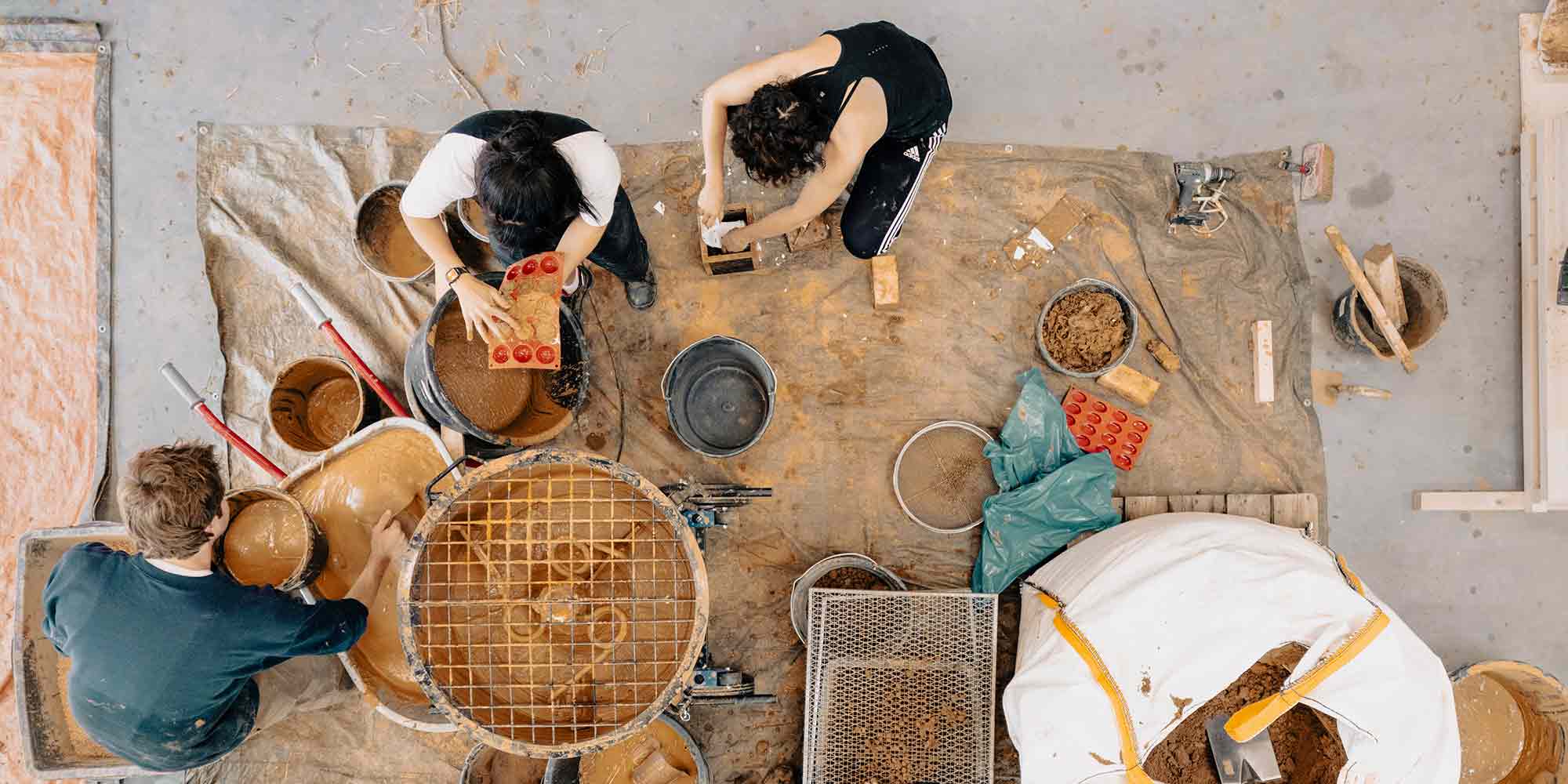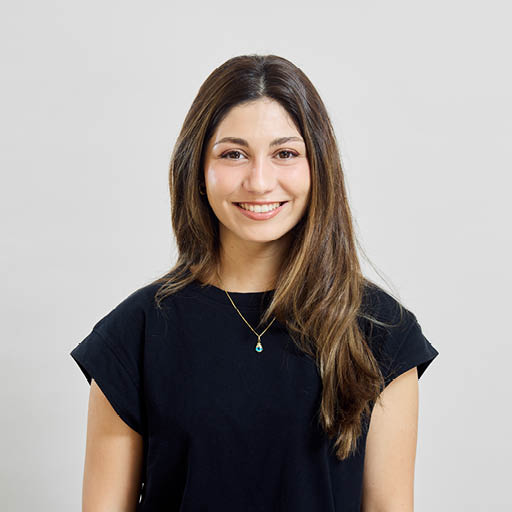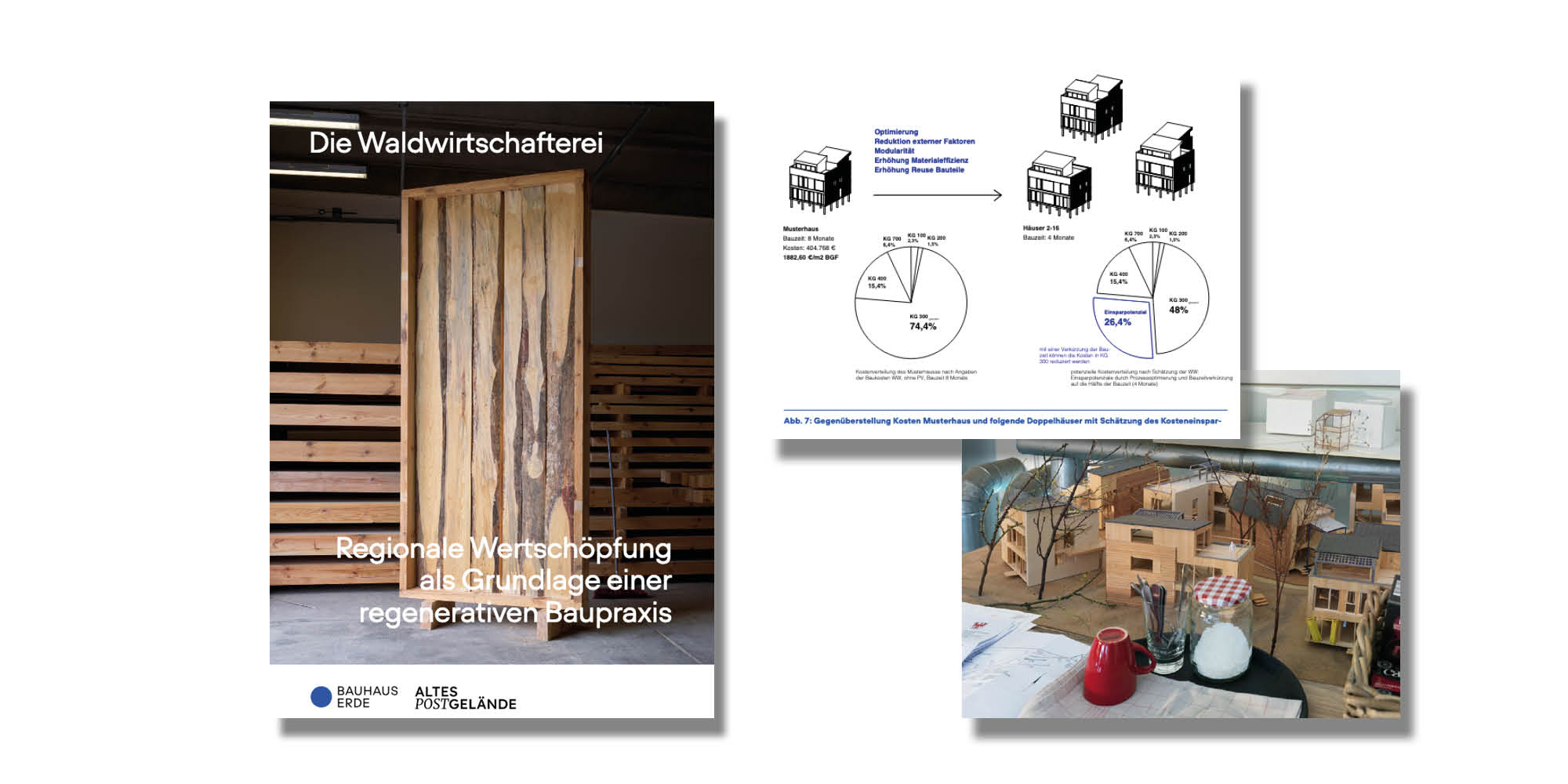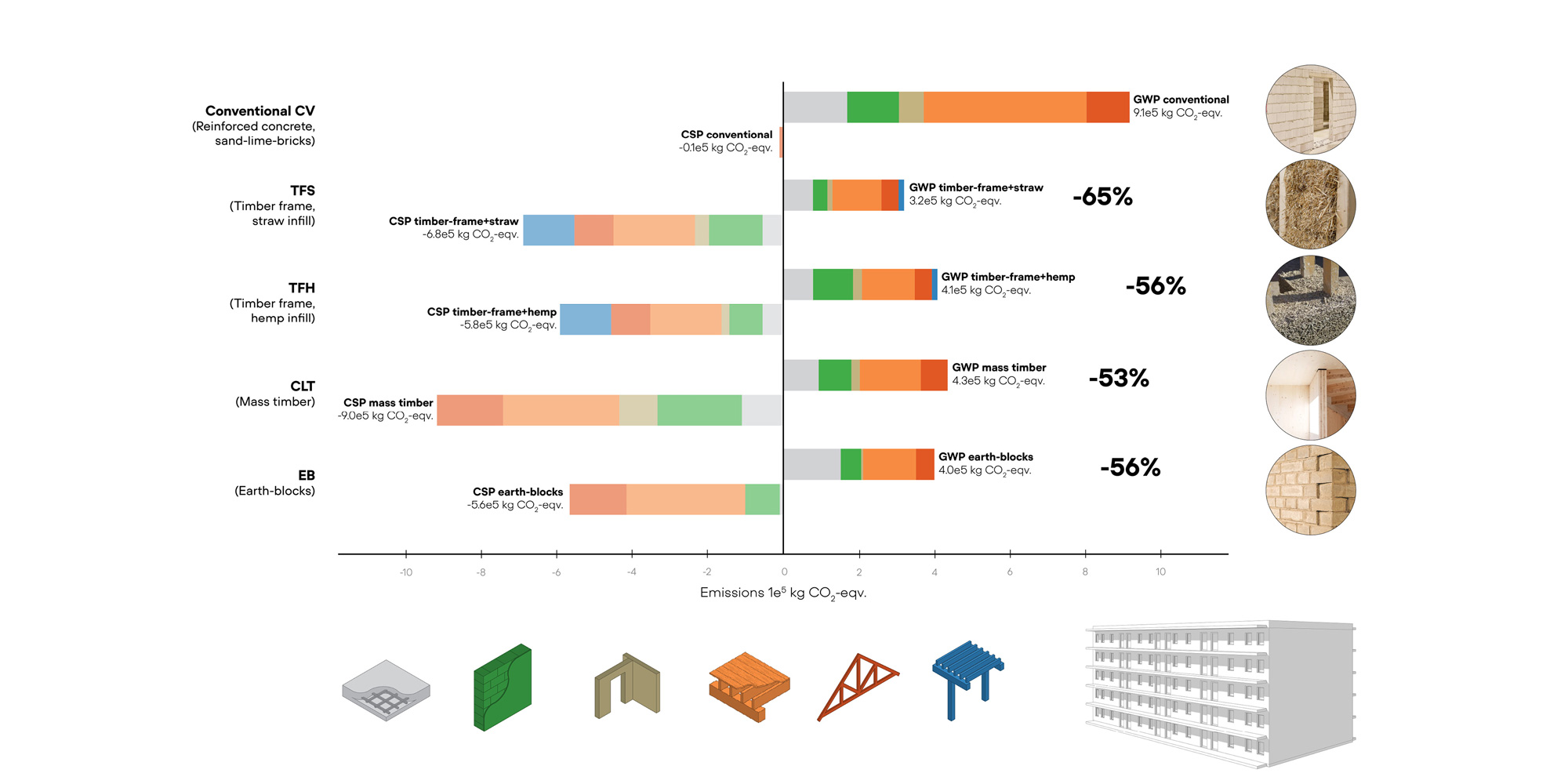Email us
All projects
Themes
Ecosystems
Nature-based Materials
Circularity
Local & Regional Practices
Prototyping
Value Chains and Networks
Duration
2023 – Present
Location
Worldwide
Experimental Fellowship at Bauhaus Earth

© Raquel Gómez Delgado
Purpose
The Experimental Fellowship at Bauhaus Earth (Experimental Fellowship — Bauhaus Earth) offers emerging talents the opportunity to expand knowledge and advance practices for a sustainable architecture of the future.
The diverse fellowship projects test new modes of practice, engagement, and knowledge in relation to shifting natural and disciplinary boundaries across different geographies and contexts. Bauhaus Earth and Experimental provide critical support at key points in the projects or practices developed within the framework of the fellowship.
Through projects that combine technical aspects with spatial and aesthetic qualities of the built environment, our Fellows identify new, powerful architectural languages for a sustainable built environment. The programme provides fellows with the necessary financial freedom, professional mentorship, network, and environment to pursue their promising ideas and experimental design approaches. Each project brings together a unique constellation of emerging actors, material manufacturers, builders, planners, researchers, project-specific partners, experts, students, and local stakeholders. Together, they produce new knowledge on regional, regenerative, and circular building, bridging the gap between institutional research and building practice.
The Fellowship is a collaboration between Bauhaus Earth and Experimental, a Berlin-based non-profit organisation founded by the architect Prof. Regine Leibinger in 2022. Experimental fosters projects that chart new territory in the field of architecture to change how and with what we build. It offers emerging talents financial and organisational support, giving them space to experience the joy of experimentation and to raise unconventional questions and project ideas. Experimental is currently further developing the fellowship programme to include new formats such as publications, exhibitions, and symposia. It is also developing new collaborations and networks.


Jury Meeting 2024, © Patrick Desbrosses
Our Fellowships
Current Fellows
The seventh fellowship in 2025-2026 is Situated Regionalism by Ha Nguyen and Hojung Kim, founders of Material Matters (MM) Research Lab. The project explores the potential of unfired earth bricks across Vietnam, and blends it with indigenous building traditions, while developing a digital soil atlas of Vietnam's ecological zones.
Past Fellows
The sixth 2025 fellowship is Grunt (Ukrainian for “earth”), by architects Anna Pomazanna and Mykhailo Shevchenko, investigating the potential of regenerative reconstruction using earth sourced from contaminated soils by industrial, agricultural and wartime sources, with a focus on Ukraine.
The fifth fellowship in 2025 is Earth, Lightly, by architects and artists Maria Lisogorskaya and Kaye Song. The project explores new approaches to forms of regenerative architecture. Centering our physical and emotional relationship to earth-based architecture, this practice-based experiment will explore colour, tools, performance, and play.
The fourth fellowship in 2024 went to the Argentinian duo, design researcher and environmental architect Heidi Jalkh and Angie Dub. Angie and Heidi’s project, CONQ: Marine Biobased Materials in the Built Environment, focuses on a bioceramic material produced at ambient temperature from shellfish industry waste.
The third fellowship in 2024 was awarded to architect Kevin Kimwelle from South Africa, for his project 90% plus fostered cross-disciplinary networking, bringing his South African design-build expertise to Berlin. His collaboration inspired innovative approaches in reused and recycled materials in the built environment.
In early 2023, interdisciplinary collective Baukreisel e.V. was selected as our second Fellow for its innovative deconstruction case study concrete.matters – primary structure laboratory. The project investigates the possibilities of scaling up the reuse of deconstructed primary concrete elements in building transformation and new developments, while reflecting on existing research references, practitioners, and projects.
Our first fellowship was awarded in 2022 to not-for-profit design and research organisation Material Cultures for their project Constructive Land Berlin/Brandenburg. This project explored the potential of rewetting peatlands in Brandenburg for the production of regional bio-based building materials. The results of the fellowship were a research report and a 1:1 architectural fragment using local paludiculture materials.
Steering of Experimental Fellowship at Bauhaus Earth
The Fellowship is led by Chrissie Muhr, Co-Managing and Artistic Director of Experimental, together with the Program Co-Managers Rosa Hanhausen and Eda Özdemir at Bauhaus Earth.
A jury meets twice a year to discuss the content and strategy of current projects, the future direction of the programme, and the selection of Fellows. To ensure impartiality, the majority of the jury consists of external, highly esteemed experts.
Jury

Prof.
Jan de Vylder
ETH Zürich Department Architecture Chair for Architecture and Design; Architecten Jan De Vylder Inge Vinck A JDVIV, Ghent/Brussels

Prof. Dr.
Philipp Misselwitz
CEO, Bauhaus Earth, Berlin

Prof. Dr.
Elli Mosayebi
Founder and Partner Edelaar Mosayebi Inderbitzin; Professor for Architecture and Design, ETH Zurich

Chrissie Muhr
Program Director Experimental Fellowship at Bauhaus Earth ; Co-Managing Director and Artistic Director, Experimental, Berlin

Prof.
Florian Nagler
Professor of Architectural Design and Construction, TU München; Florian Nagler Architekten, Munich

Prof. Dr.-Ing.
Jan Wurm
Professor of Regenerative Design and Biofabrication in Architecture, KU Leuven; EU Engagement and Venturing Lead Europe for Arup, Brussels/Berlin

Prof.
Regine Leibinger
Barkow Leibinger; Founder and Director, Experimental, Berlin

Prof. Dipl.-Ing.
Christiane Sauer
Professor for Material Design, Weißensee Kunsthochschule Berlin, Berlin

Dr.
Sabine Wittmann
Independent Artist and Architect, Wiesbaden

Prof.
Anna Ramos (former jury member)
Associate Professor of Architectural Technology, ETSAB – UPC; Director Fundació Mies van der Rohe, Barcelona

Karen Stein (former jury member)
Independent Critic and Architectural Advisor, New York
Prof.
Jan de Vylder
ETH Zürich Department Architecture Chair for Architecture and Design; Architecten Jan De Vylder Inge Vinck A JDVIV, Ghent/Brussels
Prof. Dr.
Philipp Misselwitz
CEO, Bauhaus Earth, Berlin
Prof. Dr.
Elli Mosayebi
Founder and Partner Edelaar Mosayebi Inderbitzin; Professor for Architecture and Design, ETH Zurich
Chrissie Muhr
Program Director Experimental Fellowship at Bauhaus Earth ; Co-Managing Director and Artistic Director, Experimental, Berlin
Prof.
Florian Nagler
Professor of Architectural Design and Construction, TU München; Florian Nagler Architekten, Munich
Prof. Dr.-Ing.
Jan Wurm
Professor of Regenerative Design and Biofabrication in Architecture, KU Leuven; EU Engagement and Venturing Lead Europe for Arup, Brussels/Berlin
Prof.
Regine Leibinger
Barkow Leibinger; Founder and Director, Experimental, Berlin
Prof. Dipl.-Ing.
Christiane Sauer
Professor for Material Design, Weißensee Kunsthochschule Berlin, Berlin
Dr.
Sabine Wittmann
Independent Artist and Architect, Wiesbaden
Prof.
Anna Ramos (former jury member)
Associate Professor of Architectural Technology, ETSAB – UPC; Director Fundació Mies van der Rohe, Barcelona
Karen Stein (former jury member)
Independent Critic and Architectural Advisor, New York
Team

Rosa Hanhausen
Reseacher and Project Lead

Eda Özdemir
Project Lead Experimental Fellowship
No items found.
Bauhaus Earth Alumni
Alexine Sammut
Programme Co-Manager
Matthias Ballestrem
Project Lead
For further inquiries, feel free to get in touch.
Open Call
Application Process
The 2026 Open Call for the Experimental Fellowship at Bauhaus Earth will open in spring 2026. The exact date will be announced soon.
Fellowship projects are designed to span 6 to 9 months and are intended as open-ended practice implementation. The programme includes financial support covering a monthly stipend, project-related expenses and production costs, as well as technical support and collaborations with experts.
The results of current and alumni fellowship projects are available as reports for download on the website or follow our Instagram account.
For any questions, please contact fellowship@experimental-foundation.org
For more information and how to apply, please read the Open Call Programme.
Please read the Terms & Conditions and FAQ carefully before applying.
What we look for in our Open Calls
Experimental Fellowship at Bauhaus Earth welcomes a broad spectrum of emerging international practitioners in the fields of architecture, design and engineering, art, and cross-disciplinary constellations of architectural production. Successful Fellows will have demonstrated a specific relevant individual expertise.
The Fellowship projects build on clear research questions and typically target the production of architectural fragments of a manageable scale that serve as tangible, measurable examples of new ways of building. They should aim for longevity and to be integrated in a real social context.
These projects are developed and implemented in mutual collaboration with the Fellowship team and further project-specific partners in an open and cooperative research environment. We encourage Fellows to spend as much time as possible in Berlin to make active use of both the workshop at Atelier Gardens and the resources provided by the various Bauhaus Earth initiatives and its extensive network of experts and partners. The Fellows’ presence in Berlin and Brandenburg is linked to exhibitions, lectures, symposia, seminars, and debates.
FAQ
How do I use the CMS reference field?
Using a refence field in Webflow is simple:
You select the field, and then options will be shown to you automatically which projects, or subpages, or other?
Link
Question
Answer
News
Upcoming Events
Thank you! Your submission has been received!
Oops! Something went wrong while submitting the form.
Curious about our past events further ahead? Check out all our past events below.
No events in the upcoming weeks
Past Events
Wed
12
Nov
19:00
ARCH+ Salon: Experimental Fellows on Situated Regionalism
More detailsARCH+ Space, Friedrichstraße 23a, Berlin
Panel with Hà Nguyen, Nhut Nguyen, Hojung Kim. Moderated by Anh-Linh Ngo & Chrissie Muhr
Talks
Thu
24
Jul
18:30
On Earth Construction – Final Exhibition of the Experimental Fellows at Bauhaus Earth
More detailsB–L Schaufenster, Schillerstraße 94, Berlin
Exhibition opening with "Grunt" and "Earth, Lightly" – our two recent fellows' projects
Exhibition
Sat
29
Jun
22:00
Tag der Architektur at Bauhaus Erde
More detailsIm Marienpark 16, Berlin
Join us for a tour of our Lab in Berlin and pavillion in Potsdam!
Demonstrations and Tours
Thu
20
Jun
2:00
Launch event of "CONQ: From mono-material to multi-performance"
More detailsEspinosa Studios, Buenos Aires / Online
New BE-FELLOWs Heidi and Angie will launch their project in Buenos Aires and online
Talks
Tue
30
Apr
16:00
KICK-OFF EVENT ALLIANZ DER PIONIERE
More detailsPalais der Kulturbrauerei
Launch of the new "Allianz der Pioniere" for paludiculture
Conferences
Downloads
Outcomes of our Fellowships
At the end of their projects, fellows generally produce an architectural demonstration prototype and a research documentation or a Fellowship Logbook. In addition, the time they spend in Berlin leads to collaborative exhibitions, lectures, and seminars with Bauhaus Earth, Experimental, and partners.

414films%20(3).jpeg)







.jpg)





